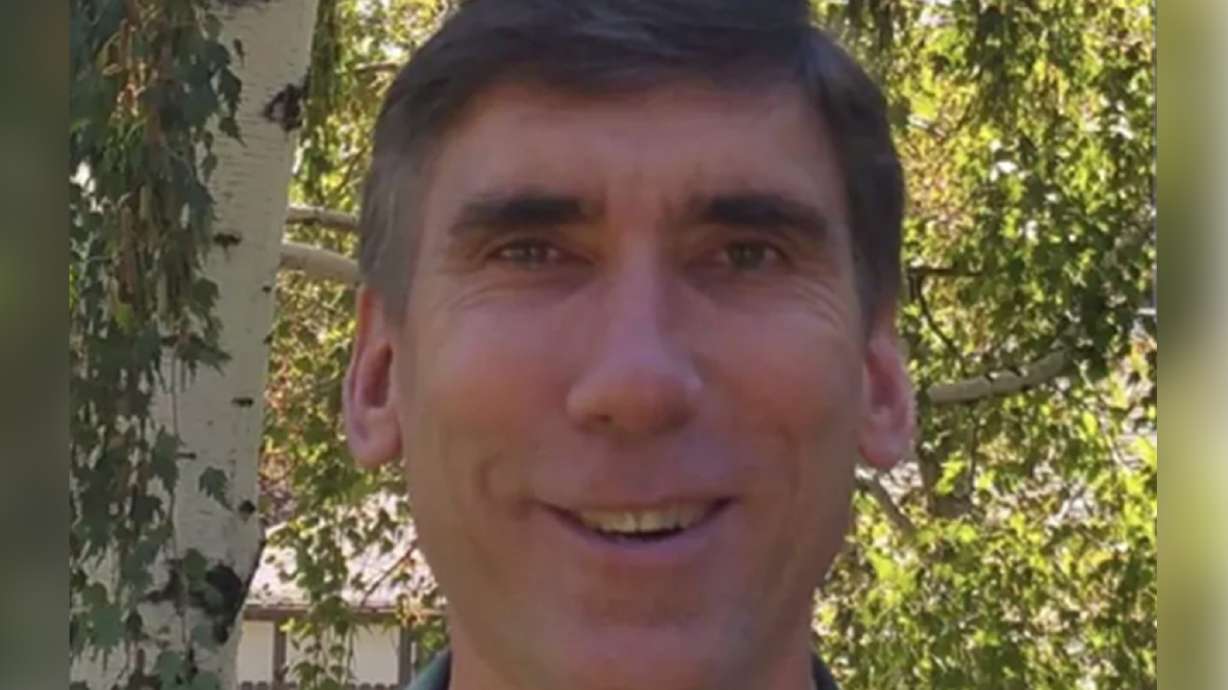Estimated read time: 5-6 minutes
This archived news story is available only for your personal, non-commercial use. Information in the story may be outdated or superseded by additional information. Reading or replaying the story in its archived form does not constitute a republication of the story.
SALT LAKE CITY — Robert John Liddiard’s family was afraid.
Liddiard had gone off his medication for schizophrenia and began calling his father Satan, telling his parents to repent and casting evil spirits out of their Holladay home.
His sister called his psychiatrist, who suggested they wait until his next appointment. And his parents summoned police, who came by at a time when Liddiard wasn’t home.
His parents did not survive the weekend.
Liddiard, 53, admitted Wednesday that he stabbed them to death on Nov. 4, 2017, believing that Satan had already murdered them and then took over the bodies of Robert Liddiard, 85, and Diane Liddiard, 78.
Their son pleaded not guilty by reason of insanity as many of his family members wept in a Salt Lake courtroom. A crying Liddiard was then immediately ordered into the custody of the Utah State Hospital, capping off a case that many said illustrates the shortcomings of the state’s mental health system.
Third District Judge Mark Kouris said it’s not Liddiard’s fault he has Capgras syndrome, a rare condition that leads a person to believe that an imposter has taken the place of someone, usually a family member.
Under the odds, “he could have gotten the skills of Michael Jordan,” Kouris said, but instead developed an illness the system is not equipped to handle. Despite its wealth and intellect, the United States does a “horrible” job of handling mental health, especially for those who have abandoned their medications, the judge said.
“Being in this courtroom, I see it every day,” Kouris added. “It’s just not fair, and I wish we had better answers.”
He ordered Liddiard to a term in the state hospital equivalent to life in prison without the possibility of parole, the penalty in Utah for a conviction of aggravated murder if the death penalty is taken off the table. Liddiard faced two counts of aggravated murder.
Several of his family members said they love him but fear what could happen if he is ever released from the state facility, where he has been since April 2018. Doctors there helped him reach a point in November where he was found competent to stand trial.
Related:
“We are still piecing our lives back together,” his sister Julie Brinkley said. If not supervised, Liddiard believes he is no longer ill, stops or changes his medicine, then spirals into paranoia, believing he is in hell and his family members aren’t who they say they are, she said.
Others said Liddiard went off his medications because they made him groggy and he wanted to be more productive doing volunteer yard work for his church and reading to schoolchildren. They said he managed to conceal his symptoms until they became an emergency.
“His illness is a monster and it hides,” said his brother David Liddiard.
Liddiard’s eldest son, Daniel, recalled that his father could be caring at times and unresponsive or angry at others, sometimes saying things like, “You’re not my real son” or “You don’t exist.” He said he’s forgiven his father ahead of time for not being a part of future milestones.
Mental health expert Nancy Cohn testified that Liddiard is among 1% to 15% of schizophrenic people who have been diagnosed with Capgras. There are crisis teams at the the University of Utah’s Neuropsychiatric Institute and Volunteers of America that can respond in such cases, she noted, but his family’s attempts to get help through other avenues failed.
“That’s really the tragic, tragic part of this case,” Cohn said.
After two years of treatment, Liddiard recently reported that he knows he killed his father but maintains that his dad appeared to be Satan at the time, Cohn said. It means he still has some ideas of delusion, which appear resistant to medication.
“Monitoring the delusion is going to be important,” Cohn said.
Other states have centralized systems that track the mental health of those who plead not guilty by reason of insanity, she added. Yet Utah does not provide the kind of close monitoring Liddiard would likely require in order to someday be safely released from the psychiatric hospital, she said.
His illness is a monster and it hides.
–David Liddiard
If that does not change, prosecutor Joshua Graves said it’s important that Liddiard remain in the Provo hospital. But defense attorney Neal Hamilton said he does not expect his client to ever be released.
Hamilton fought tears throughout the hearing.
“This case has broken me,” he said.
His client, shackled and wearing a black suit, hung his head and said when his psychiatrist asked him if he had ever thought of killing his parents, he replied “no.”
“I know that I can’t apologize enough, because that doesn’t bring my parents back,” Liddiard said, his eyes filled with tears. “I love them and I’m sorry for what I’ve done.” He clutched a handful of tissues as he was led out of the courtroom.
The case has inspired a Democratic state lawmaker who lives in Liddiard’s former neighborhood to propose a bill in the 2020 Legislature, which convenes Jan. 27. Minority Whip Rep. Carol Spackman Moss seeks to make Utah’s insanity defense available to more mentally ill defendants. She could also be seen crying in the courtroom gallery Wednesday.
“This is the best possible outcome in a very tragic case,” Moss said.











